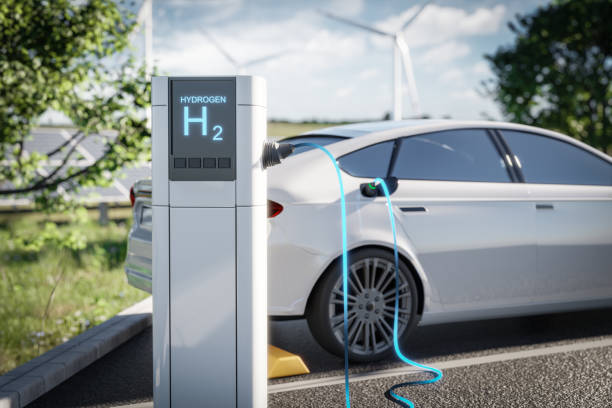The electric vehicle (EV) industry is rapidly evolving, driven by advancements in technology, changing consumer preferences, and increasing environmental awareness. As we look toward the future of electric cars, several key trends and innovations are set to redefine the automotive landscape. Here’s an in-depth look at what to expect from next-generation electric vehicles.
1. Advanced Battery Technology
Overview: Battery technology is at the heart of electric vehicles, and advancements in this area will significantly impact the performance, range, and affordability of future EVs.
Key Trends:
- Solid-State Batteries: These batteries promise higher energy density, faster charging times, and improved safety compared to traditional lithium-ion batteries. Companies like Toyota and QuantumScape are leading the charge in this technology.
- Battery Recycling: As EV adoption grows, the focus on sustainable battery recycling and repurposing is becoming crucial. Innovations in recycling processes will help reduce the environmental impact and lower costs.
Expectations:
- Extended Range: Next-generation batteries will likely offer longer ranges on a single charge, addressing one of the primary concerns of current EV owners.
- Faster Charging: Improvements in battery technology and charging infrastructure will lead to significantly reduced charging times, making EVs more convenient for everyday use.
2. Enhanced Autonomous Driving Capabilities
Overview: Autonomous driving technology is progressing rapidly, and future electric cars will increasingly incorporate advanced driver assistance systems (ADAS) and full self-driving (FSD) capabilities.
Key Trends:
- Advanced Sensor Systems: Future EVs will feature more sophisticated sensor arrays, including lidar, radar, and high-definition cameras, to enhance their perception and decision-making abilities.
- AI and Machine Learning: The integration of artificial intelligence (AI) and machine learning will improve the accuracy and safety of autonomous driving systems, making self-driving EVs more reliable.
Expectations:
- Level 4 and 5 Autonomy: Expect to see EVs with Level 4 (high automation) and Level 5 (full automation) capabilities, allowing for hands-free driving in most conditions and potentially revolutionizing transportation.
3. Innovative Design and Integration
Overview: The design of electric vehicles is evolving to reflect their technological advancements and address new user needs.
Key Trends:
- Vehicle-to-Grid (V2G) Integration: Future EVs will be able to interact with the power grid, allowing them to store and return electricity to the grid during peak demand times, contributing to grid stability and efficiency.
- Modular and Flexible Interiors: As the need for traditional driving controls diminishes with autonomous driving, expect more versatile and adaptable interiors that can transform into living or working spaces.
Expectations:
- Futuristic Designs: Next-generation EVs will feature sleek, aerodynamic designs that maximize efficiency and incorporate innovative materials for improved performance and aesthetics.
- Smart Interfaces: Advanced infotainment systems and augmented reality (AR) displays will enhance the driving experience and provide more intuitive interactions.
4. Sustainable and Efficient Manufacturing
Overview: Sustainability is becoming a key focus in the automotive industry, with manufacturers striving to reduce the environmental impact of vehicle production.
Key Trends:
- Eco-Friendly Materials: The use of sustainable materials, such as recycled plastics and natural fibers, will become more prevalent in vehicle interiors and exteriors.
- Green Manufacturing Processes: Advances in manufacturing processes, including energy-efficient production and reduced emissions, will contribute to the overall sustainability of EVs.
Expectations:
- Reduced Carbon Footprint: Future EVs will be produced with a smaller carbon footprint, aligning with global efforts to combat climate change and promote environmental responsibility.
- Circular Economy: Emphasis on recycling and reusing materials will become standard practice in the manufacturing process, further enhancing the sustainability of electric vehicles.
5. Expanded Charging Infrastructure
Overview: The growth of the electric vehicle market will be supported by an expanded and more efficient charging infrastructure.
Key Trends:
- Ultra-Fast Charging Stations: The deployment of ultra-fast charging stations will reduce charging times and make long-distance travel more feasible for EV owners.
- Wireless Charging: Emerging technologies such as inductive or wireless charging will offer more convenient charging solutions, potentially eliminating the need for physical connectors.
Expectations:
- Widespread Availability: A more extensive network of charging stations, including at homes, workplaces, and public locations, will facilitate easier access to charging and support the growing number of electric vehicles on the road.
- Smart Charging Solutions: Integration with smart grid technologies and user-friendly apps will optimize charging schedules and locations, enhancing the overall convenience for EV users.
6. Affordable and Accessible EVs
Overview: The future of electric cars will include efforts to make EVs more affordable and accessible to a broader range of consumers.
Key Trends:
- Cost Reduction: Advances in battery technology and manufacturing processes will drive down the cost of electric vehicles, making them more competitive with traditional internal combustion engine vehicles.
- Government Incentives: Continued support from governments in the form of subsidies, tax credits, and incentives will help reduce the upfront cost of EVs and encourage adoption.
Expectations:
- Diverse Offerings: A wider range of electric vehicles, including budget-friendly options and various body styles, will cater to different market segments and preferences.
- Increased Adoption: As EVs become more affordable and accessible, their adoption will accelerate, contributing to a significant shift towards electric mobility.
Conclusion
The future of electric cars promises exciting advancements and innovations that will transform the automotive industry. From breakthrough battery technologies and enhanced autonomous driving capabilities to sustainable manufacturing practices and expanded charging infrastructure, the next generation of electric vehicles will offer improved performance, greater convenience, and a more sustainable driving experience. As these developments unfold, electric cars will play a pivotal role in shaping the future of transportation and contributing to a cleaner, greener world.
